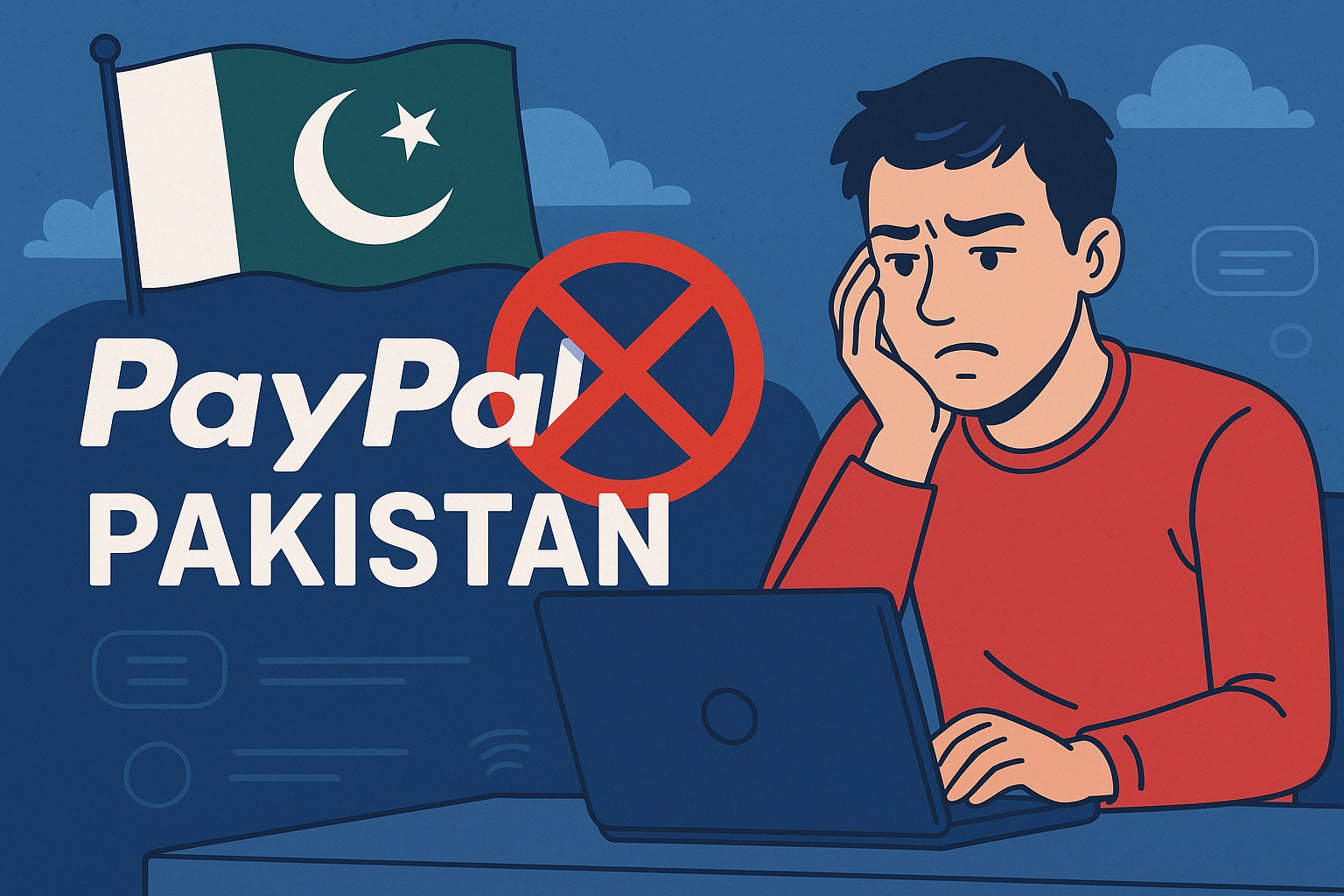The question "is paypal available in pakistan" has been a persistent concern for millions of Pakistani freelancers, entrepreneurs, and digital professionals who rely on international payment systems for their livelihoods. Despite Pakistan's rapidly growing digital economy and increasing integration with global markets, the absence of PayPal continues to create significant challenges for individuals and businesses seeking efficient international payment solutions.
Pakistan's digital landscape has undergone remarkable transformation over the past decade, with the country emerging as a major hub for freelancing, software development, and digital services. The nation boasts over 71 million internet users and a thriving community of more than 2 million freelancers who contribute billions of dollars annually to the national economy. However, the unavailability of PayPal Pakistan services has remained a persistent barrier to the country's full integration into the global digital economy.
The significance of this issue extends far beyond individual inconvenience. The absence of PayPal in Pakistan affects the country's competitiveness in international markets, limits opportunities for small businesses and entrepreneurs, and creates additional costs and complexities for those seeking to receive international payments. Understanding the current status, underlying reasons, and available alternatives has become crucial for anyone involved in Pakistan's digital economy.
This comprehensive guide examines every aspect of PayPal's relationship with Pakistan, from the regulatory barriers that prevent its operation to the practical alternatives available to Pakistani users. Whether you're a freelancer wondering can i use paypal in pakistan, an entrepreneur exploring payment options, or simply curious about the future prospects, this guide provides the definitive answers you need.
Current Status: PayPal Availability in Pakistan
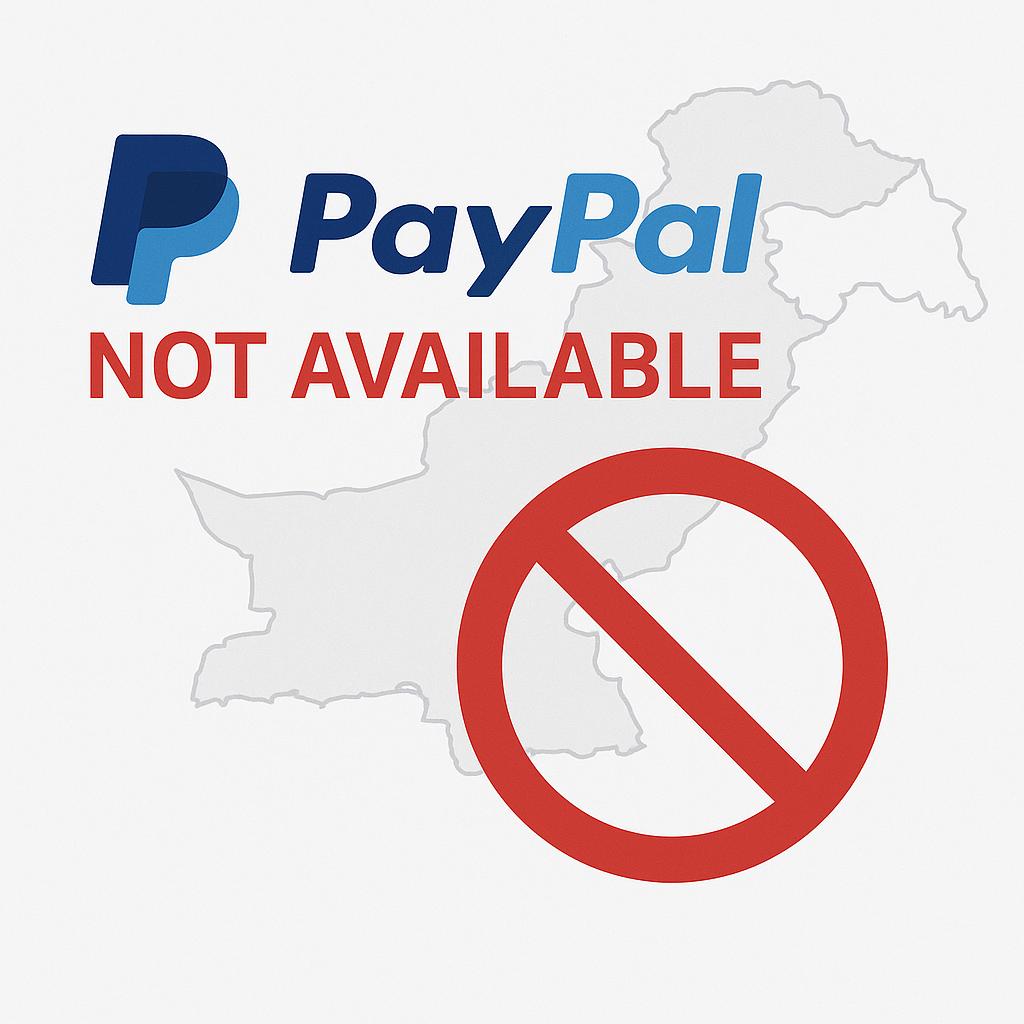
The straightforward answer to does paypal work in pakistan is no – PayPal does not officially operate in Pakistan as of 2025. This status has remained unchanged for over a decade, despite numerous discussions, government initiatives, and public campaigns advocating for PayPal's entry into the Pakistani market. The platform's official country list explicitly excludes Pakistan, making it impossible for residents to create legitimate PayPal accounts using Pakistani addresses, phone numbers, or banking information.
PayPal's global presence spans over 200 countries and territories, supporting 25 different currencies and facilitating billions of dollars in transactions annually. However, Pakistan remains notably absent from this extensive network, alongside a small number of other countries that face similar restrictions due to various regulatory, economic, or compliance-related factors. This exclusion places Pakistan in a unique position among major economies, particularly given its significant contribution to the global freelancing market.
The impact of this unavailability is substantial and multifaceted. Pakistani freelancers, who constitute one of the world's largest freelancing communities, must navigate complex workarounds to receive payments from international clients. Many popular freelancing platforms, including Upwork, Fiverr, and Freelancer.com, offer PayPal as a primary payment method, but Pakistani users cannot access this option directly. This limitation often results in longer payment processing times, higher transaction fees, and increased complexity in financial management.
Can we make paypal account in pakistan is another frequently asked question, and the answer remains definitively no through official channels. PayPal's registration process includes strict verification procedures that require valid addresses and phone numbers from supported countries. Attempts to circumvent these restrictions through unofficial means violate PayPal's terms of service and can result in account suspension, fund freezing, and potential legal complications.
The absence of PayPal has also affected Pakistan's e-commerce sector, where international payment processing capabilities are crucial for cross-border trade. Many Pakistani businesses seeking to sell products or services internationally must rely on alternative payment processors, which may not offer the same level of global recognition, buyer protection, or ease of use that PayPal provides. This limitation can impact customer trust and conversion rates, particularly when dealing with international buyers who prefer familiar payment methods.
Recent developments have included various government statements and initiatives aimed at attracting international payment processors to Pakistan. However, despite optimistic announcements and ongoing discussions, no concrete progress has been made toward establishing PayPal operations in the country. The complexity of regulatory requirements, compliance standards, and business considerations continues to present significant barriers to entry.
Understanding the Regulatory Barriers
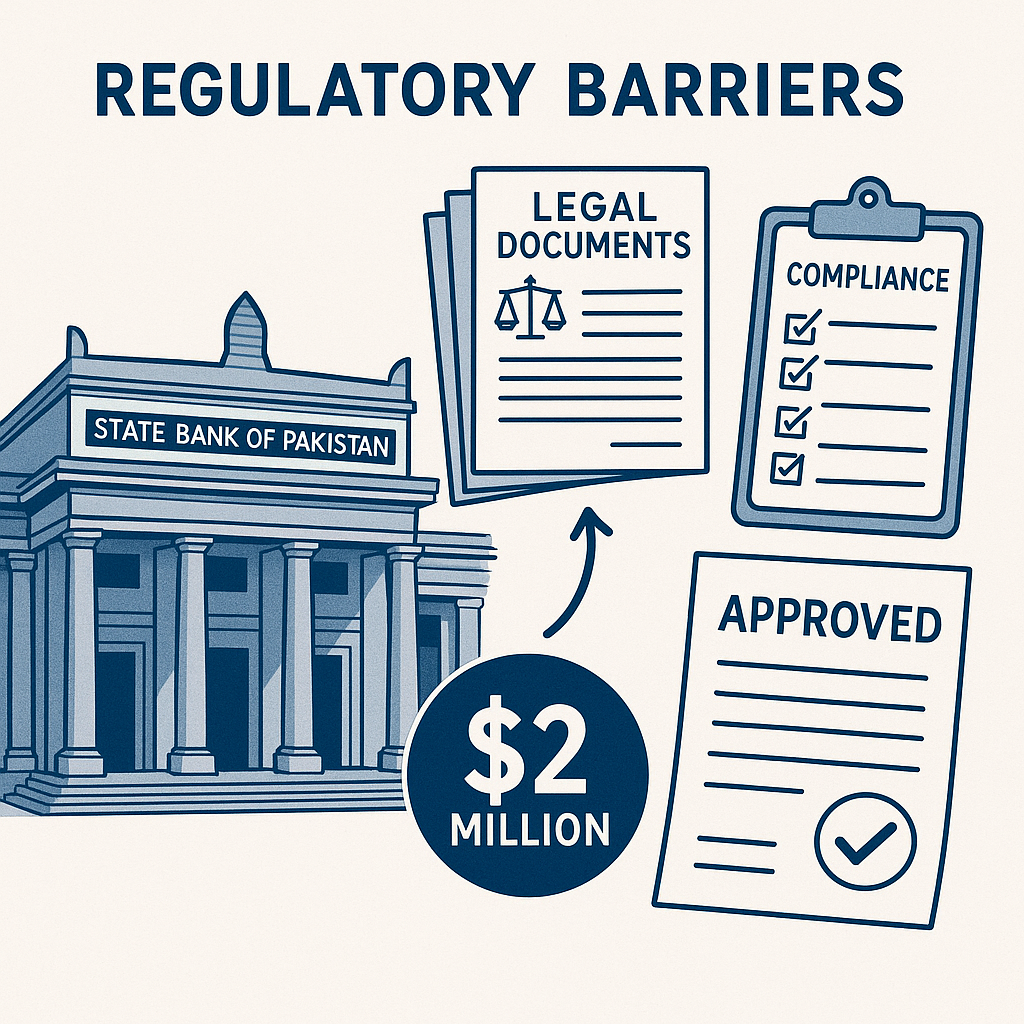
The primary obstacles preventing PayPal's entry into Pakistan stem from a complex web of regulatory requirements, compliance standards, and business considerations that make the Pakistani market challenging for international payment processors. The State Bank of Pakistan (SBP), as the country's central banking authority, maintains strict oversight over foreign exchange transactions and international payment systems, creating a regulatory environment that requires significant investment and compliance efforts from potential operators.
One of the most significant barriers is the SBP's licensing requirement for international payment service providers. Companies seeking to operate payment processing services in Pakistan must obtain specific licenses that involve a three-stage approval process, extensive documentation, and substantial financial commitments. The licensing fee alone is reported to be approximately $2 million, representing a significant upfront investment that must be justified by expected market returns and operational viability.
The regulatory framework also includes stringent anti-money laundering (AML) and know-your-customer (KYC) requirements that international payment processors must implement. These compliance standards require sophisticated monitoring systems, detailed transaction reporting, and ongoing cooperation with Pakistani regulatory authorities. For a company like PayPal, implementing these systems specifically for the Pakistani market would require substantial technological and operational investments.
Data localization requirements present another significant challenge. Pakistani regulations require certain types of financial data to be stored within the country's borders, necessitating the establishment of local data centers or partnerships with approved local providers. This requirement adds complexity and cost to operations while potentially conflicting with global data management strategies employed by international companies.
Currency control regulations further complicate the operational landscape. Pakistan maintains specific rules governing foreign exchange transactions, currency conversion, and cross-border money transfers. These regulations require payment processors to implement specialized systems for currency handling, reporting, and compliance monitoring. The complexity of these requirements, combined with the need for ongoing regulatory updates and adaptations, creates operational challenges that may not be economically viable for all international payment processors.
Why paypal is not available in pakistan can be attributed to these cumulative regulatory challenges, which create a high barrier to entry that may not be justified by the potential market size and revenue opportunities. While Pakistan represents a significant market in terms of user numbers and transaction volume, the regulatory compliance costs and operational complexities may exceed the expected returns, making it an unattractive business proposition for PayPal.
The SBP has indicated willingness to facilitate the entry of international payment processors, including PayPal, but this facilitation still requires compliance with existing regulatory frameworks. Recent statements from Pakistani officials have emphasized that no legal barriers prevent PayPal's entry, but the practical implementation of regulatory compliance remains a significant challenge that requires substantial investment and commitment from interested companies.
Why PayPal is Not Available: Detailed Analysis
The question why paypal is banned in pakistan reflects a common misunderstanding about the nature of PayPal's absence from the Pakistani market. PayPal is not technically "banned" in Pakistan; rather, the company has chosen not to establish operations in the country due to a combination of business, regulatory, and operational factors that make the Pakistani market challenging and potentially unprofitable.
From a business perspective, PayPal operates as a profit-driven corporation that must evaluate market opportunities based on potential returns, operational costs, and risk factors. The Pakistani market, while large in terms of user numbers, may not generate sufficient revenue to justify the substantial investments required for regulatory compliance, infrastructure development, and ongoing operations. The company's business model relies on transaction fees and currency conversion charges, and the volume and value of transactions in Pakistan may not meet the thresholds necessary for profitable operations.
Regulatory complexity represents another significant factor in PayPal's decision-making process. The company must navigate different regulatory environments in each country where it operates, and Pakistan's regulatory framework presents unique challenges that require specialized expertise, ongoing compliance monitoring, and substantial legal and operational investments. The three-stage approval process, licensing fees, and ongoing compliance requirements create a complex operational environment that may not align with PayPal's global operational strategies.
Risk assessment considerations also play a crucial role in PayPal's market entry decisions. The company must evaluate various risk factors, including regulatory stability, economic conditions, currency volatility, and potential security concerns. Pakistan's economic and political environment, while improving, may present risk factors that influence PayPal's assessment of market viability and long-term operational sustainability.
Technical infrastructure requirements present additional challenges. PayPal's global platform requires sophisticated integration with local banking systems, payment networks, and regulatory reporting systems. Establishing these integrations in Pakistan would require significant technical development, testing, and ongoing maintenance that must be justified by expected transaction volumes and revenue generation.
The competitive landscape in Pakistan also influences PayPal's market assessment. Several alternative payment processors, including Payoneer, Skrill, and Wise, already operate in Pakistan and have established market presence. Entering this competitive environment would require substantial marketing investments and competitive positioning strategies that may not guarantee market share capture or revenue generation.
Currency considerations add another layer of complexity. Pakistan's currency controls, exchange rate volatility, and conversion regulations create operational challenges for international payment processors. PayPal would need to implement specialized systems for handling Pakistani rupee transactions, currency conversions, and compliance with local foreign exchange regulations.
Government Efforts and Current Developments
Pakistani government officials have made various statements and initiatives aimed at attracting international payment processors, including PayPal, to establish operations in the country. These efforts reflect recognition of the importance of digital payment infrastructure for economic growth, freelancer support, and international trade facilitation. However, the gap between government intentions and practical implementation continues to present challenges.
Recent statements from the State Bank of Pakistan have emphasized openness to facilitating PayPal's entry into the Pakistani market. SBP officials have indicated willingness to work with international payment processors to address regulatory concerns and streamline approval processes. However, these statements have not yet translated into concrete policy changes or simplified regulatory frameworks that would make market entry more attractive for companies like PayPal.
The Ministry of Information Technology and Telecommunication has also expressed support for digital payment infrastructure development and has engaged in discussions with various international companies about potential market entry. These discussions have included exploration of regulatory modifications, infrastructure development support, and other incentives that might encourage international payment processors to consider Pakistani operations.
When paypal will be available in pakistan remains an unanswered question despite these government efforts. While officials have made optimistic statements about potential timelines, no concrete agreements or implementation schedules have been announced. The complexity of regulatory alignment, business negotiations, and operational planning makes it difficult to predict specific timelines for PayPal's potential entry into the Pakistani market.
When is paypal coming to pakistan has been a recurring question in government statements and media coverage, but fact-checking organizations have consistently debunked claims about imminent PayPal launches. Despite periodic announcements and optimistic statements from government officials, PayPal has not made any official commitments to establishing operations in Pakistan, and no concrete implementation timelines have been confirmed.
The government's efforts have included engagement with other international payment processors as well, recognizing that diversifying digital payment options would benefit the Pakistani economy regardless of PayPal's specific decisions. These broader initiatives aim to create a more attractive regulatory environment for international financial technology companies while addressing the specific needs of Pakistani freelancers and businesses.
Available Alternatives for Pakistani Users
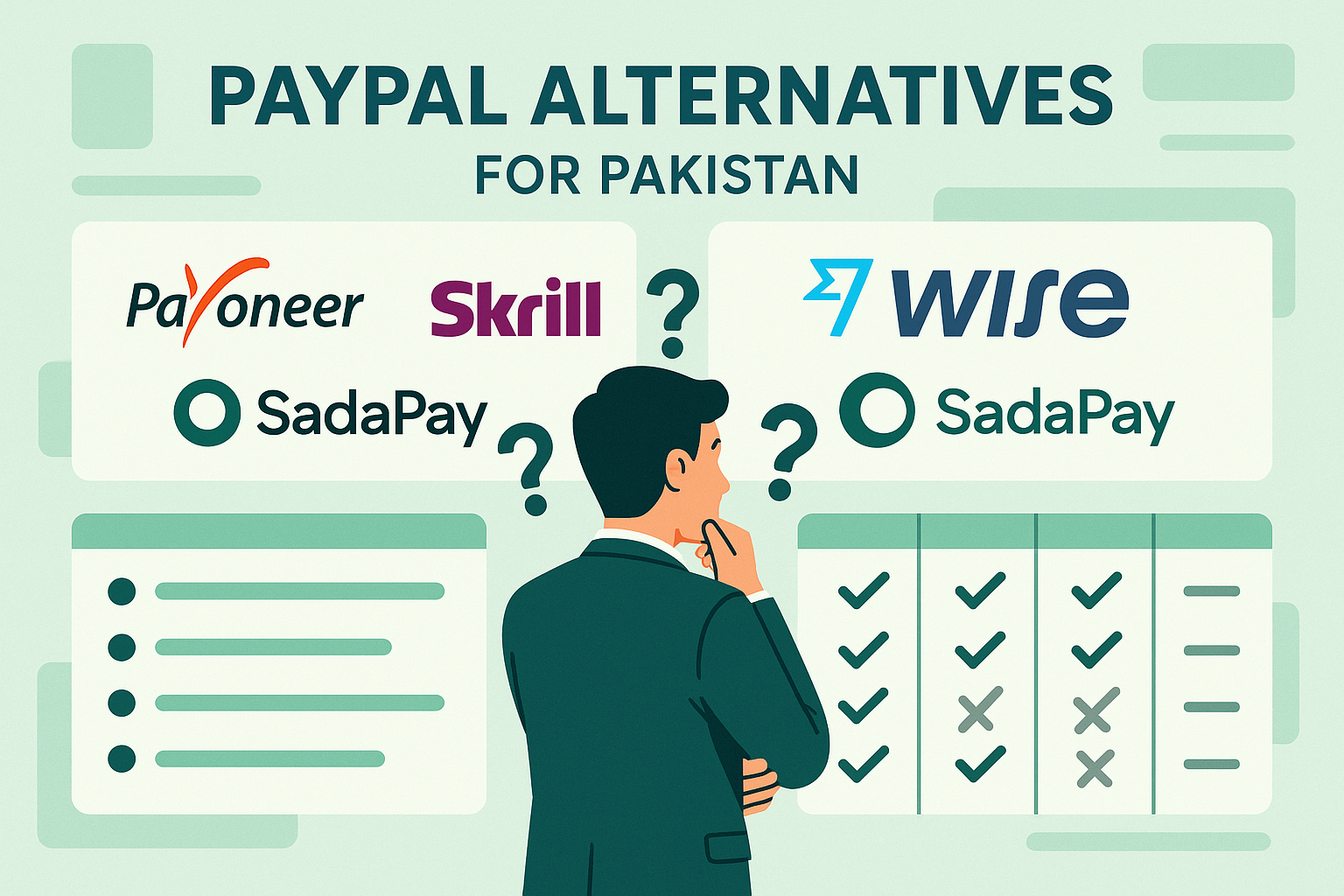
While PayPal remains unavailable, Pakistani users have access to several alternative payment platforms that provide international money transfer and payment processing services. These alternatives have evolved to serve the specific needs of the Pakistani market, offering various features, fee structures, and service levels that cater to different user requirements and preferences.
Payoneer stands out as the most popular PayPal alternative among Pakistani freelancers and businesses. The platform offers comprehensive payment processing services, including the ability to receive payments from international clients, withdraw funds to local Pakistani bank accounts, and access funds through prepaid debit cards. Payoneer's fee structure is competitive, and the platform provides customer support in multiple languages, including Urdu, making it accessible to Pakistani users.
The platform's integration with major freelancing websites, including Upwork, Fiverr, and Freelancer.com, makes it particularly attractive for Pakistani freelancers who constitute a significant portion of the global freelancing workforce. Payoneer also offers currency conversion services, allowing users to hold balances in multiple currencies and convert funds at competitive exchange rates.
Skrill represents another viable alternative that provides international payment processing services to Pakistani users. The platform offers lower transaction fees for certain types of transactions and provides a user-friendly interface that appeals to both individual users and businesses. Skrill's integration with various online platforms and services makes it suitable for different types of international transactions.
Wise, formerly known as TransferWise, has gained popularity among Pakistani users seeking cost-effective international money transfers. The platform's transparent fee structure and competitive exchange rates make it attractive for users who prioritize cost efficiency in their international transactions. Wise also offers multi-currency accounts that allow users to hold and manage funds in different currencies.
How to withdraw money from paypal in pakistan is not applicable since PayPal is unavailable, but these alternative platforms provide various withdrawal options for Pakistani users. Most platforms support direct bank transfers to Pakistani banks, prepaid debit cards, and other withdrawal methods that provide convenient access to funds.
Local Pakistani banks have also developed international payment solutions that serve as alternatives to PayPal. Major banks, including Habib Bank Limited (HBL), United Bank Limited (UBL), and Allied Bank Limited (ABL), offer freelancer accounts and international wire transfer services that enable Pakistani users to receive international payments directly into their local bank accounts.
Paypal dealer in pakistan is not a legitimate concept since PayPal does not operate in the country, but various authorized agents and service providers for alternative payment platforms operate throughout Pakistan. These agents provide customer support, account setup assistance, and other services that help Pakistani users access international payment solutions.
Impact on Pakistani Freelancers and Businesses
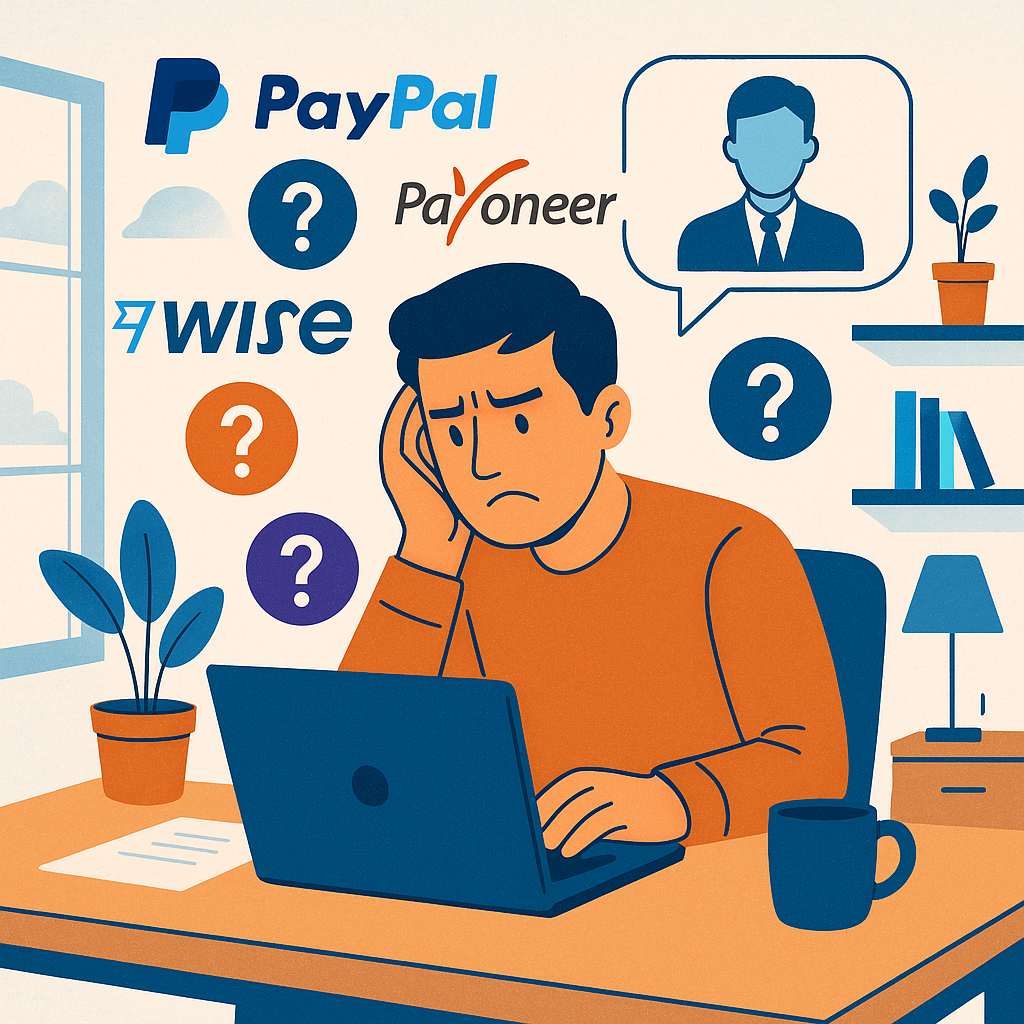
The unavailability of PayPal has created significant challenges for Pakistan's thriving freelancing community, which represents one of the world's largest concentrations of digital service providers. Pakistani freelancers contribute billions of dollars annually to the national economy, but the absence of PayPal creates additional costs, complexities, and barriers that affect their competitiveness in international markets.
Transaction costs represent one of the most immediate impacts of PayPal's unavailability. Alternative payment platforms typically charge higher fees than PayPal for similar services, reducing the net income that Pakistani freelancers receive from their international clients. These additional costs can range from 2-5% of transaction values, representing significant amounts for high-volume freelancers who process thousands of dollars in payments monthly.
Payment processing times also tend to be longer with alternative platforms compared to PayPal's typically instant or near-instant processing. Many Pakistani freelancers report waiting 3-7 business days for payments to be processed and transferred to their local bank accounts, compared to PayPal's same-day or next-day processing capabilities. These delays can create cash flow challenges, particularly for freelancers who rely on regular payment schedules for their living expenses.
Client preferences and trust factors also impact Pakistani freelancers' competitiveness. Many international clients prefer PayPal due to its widespread recognition, buyer protection features, and ease of use. When Pakistani freelancers cannot offer PayPal as a payment option, they may lose potential clients or face additional negotiation complexities in establishing alternative payment arrangements.
The complexity of managing multiple payment platforms creates additional administrative burdens for Pakistani freelancers. Many must maintain accounts with several alternative platforms to accommodate different client preferences, resulting in increased account management responsibilities, fee structures to track, and tax reporting complexities.
Currency conversion challenges add another layer of complexity. While PayPal offers competitive exchange rates and transparent conversion processes, alternative platforms may have less favorable rates or more complex conversion procedures. These factors can impact the actual amount that Pakistani freelancers receive from their international earnings.
Small and medium-sized businesses in Pakistan also face challenges related to PayPal's unavailability. E-commerce businesses seeking to sell products internationally often struggle with payment processing options that provide the same level of customer trust and convenience as PayPal. This limitation can affect conversion rates, customer satisfaction, and overall business growth potential.
The educational and onboarding challenges associated with alternative platforms also impact Pakistani users. While PayPal's widespread use means that most international clients are familiar with its processes, alternative platforms may require additional explanation and setup assistance, creating friction in client relationships and business operations.
Comparison: Payoneer vs PayPal for Pakistan
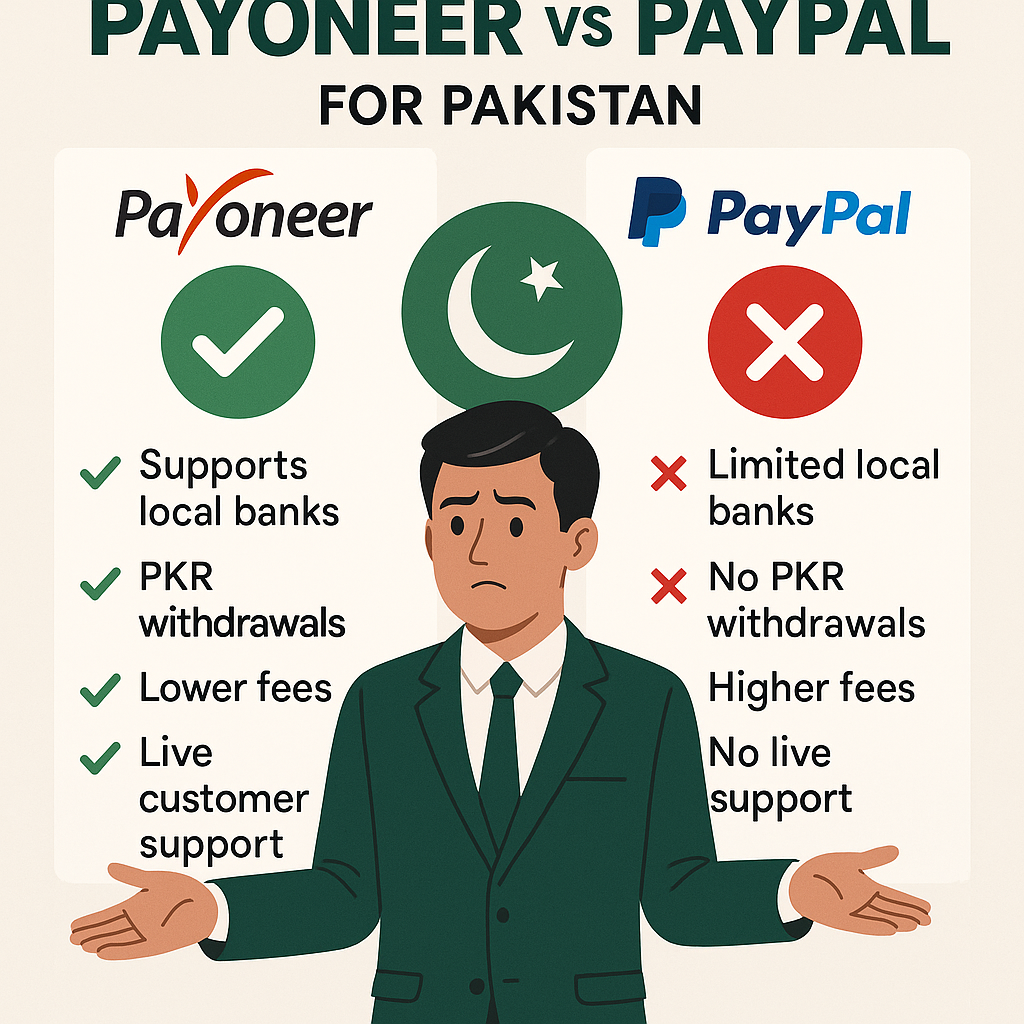
Since Payoneer serves as the primary alternative to PayPal for Pakistani users, understanding the differences between these platforms helps users make informed decisions about their international payment processing needs. While PayPal remains unavailable, comparing its features with Payoneer's offerings provides insight into what Pakistani users gain and lose by using alternative platforms.
Fee structures represent one of the most significant differences between the platforms. Payoneer typically charges fees ranging from 1-3% for receiving payments, depending on the payment source and method. Additional fees apply for currency conversion, bank transfers, and card transactions. PayPal's fee structure, while not available to Pakistani users, generally offers competitive rates for similar services, often with lower fees for high-volume users.
Currency support differs between the platforms, with PayPal supporting 25 currencies compared to Payoneer's support for over 150 currencies. This broader currency support makes Payoneer more versatile for Pakistani users who work with clients from diverse geographic regions and need to handle various currency types.
Integration capabilities vary significantly between the platforms. PayPal's extensive integration with e-commerce platforms, freelancing websites, and business tools makes it highly versatile for different types of online transactions. Payoneer also offers substantial integration capabilities, particularly with major freelancing platforms, but may not match PayPal's breadth of integration options.
Customer support accessibility represents an important consideration for Pakistani users. Payoneer provides customer support in multiple languages, including Urdu, and offers local support options that cater specifically to Pakistani users' needs. PayPal's customer support, while comprehensive, is not available to Pakistani users due to the platform's unavailability in the country.
Withdrawal options differ between the platforms, with Payoneer offering direct bank transfers to Pakistani banks, prepaid debit cards, and other local withdrawal methods. PayPal's withdrawal options, while not available to Pakistani users, typically include bank transfers, debit cards, and various other methods depending on the user's location.
Security features and buyer protection policies represent important considerations for international transactions. PayPal's buyer and seller protection programs are well-established and widely recognized, providing confidence for both parties in international transactions. Payoneer also offers security features and dispute resolution services, but these may not have the same level of recognition or comprehensiveness as PayPal's protection programs.
Processing times vary between the platforms, with Payoneer typically requiring 1-3 business days for payment processing and bank transfers. PayPal's processing times, while not available to Pakistani users, are generally faster, often providing same-day or instant processing for many types of transactions.
Future Outlook and Possibilities
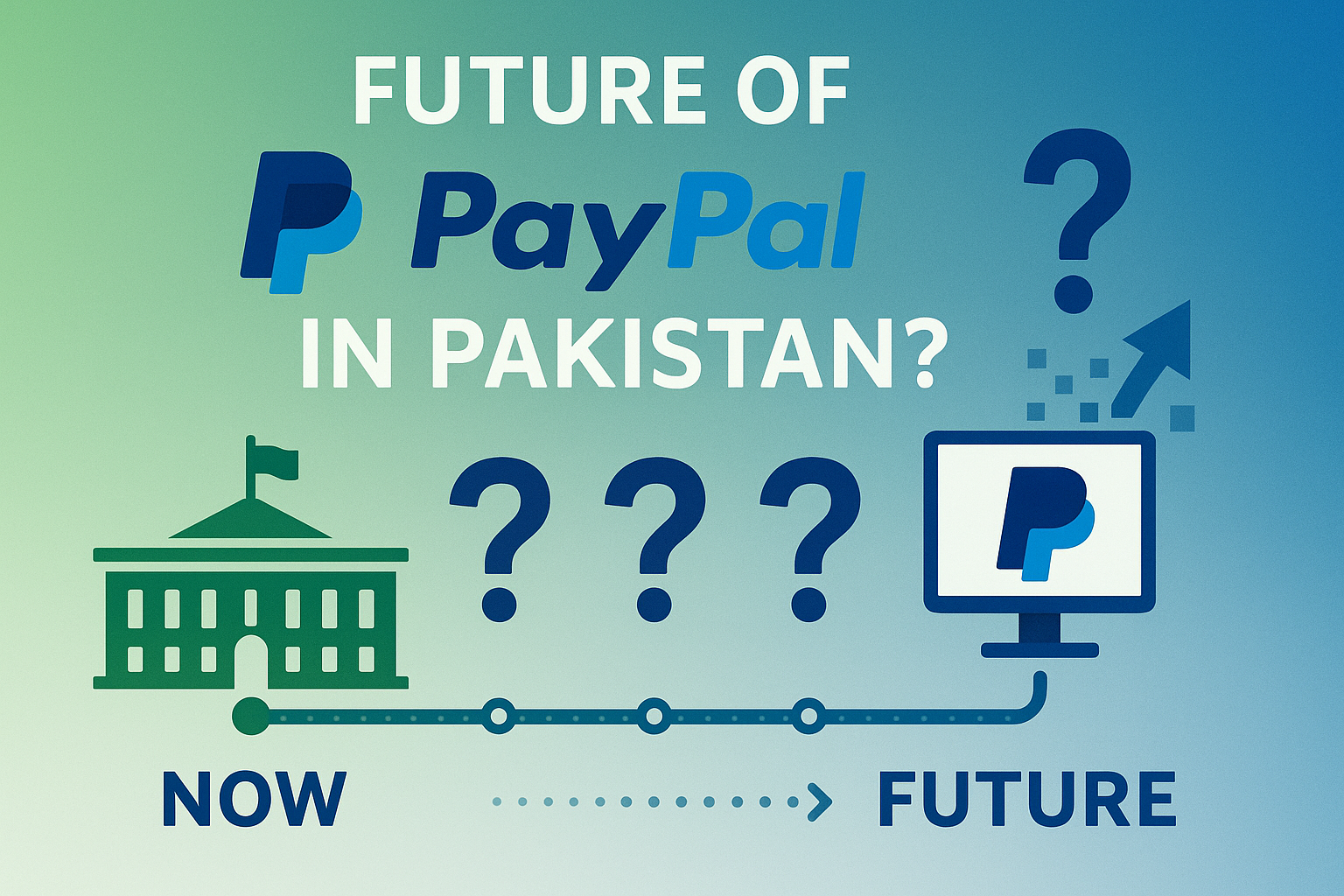
The future prospects for PayPal's entry into Pakistan remain uncertain, with various factors influencing the likelihood and timeline of potential market entry. While government officials continue to express optimism about attracting international payment processors, the practical challenges and business considerations that have prevented PayPal's entry thus far continue to present significant barriers.
Regulatory evolution represents one potential pathway for PayPal's future entry into Pakistan. If the State Bank of Pakistan and other regulatory authorities implement reforms that simplify compliance requirements, reduce licensing costs, or streamline approval processes, the Pakistani market might become more attractive to international payment processors. However, such regulatory changes would need to balance market accessibility with necessary oversight and compliance standards.
Market size and economic growth could also influence PayPal's future assessment of the Pakistani market. As Pakistan's digital economy continues to expand and the volume of international transactions increases, the potential revenue opportunities might eventually justify the investment required for market entry. The country's growing freelancer community and expanding e-commerce sector could contribute to this market attractiveness.
Competitive dynamics in the international payment processing industry might also affect PayPal's strategic decisions regarding Pakistan. If competitors continue to gain market share in Pakistan or if new entrants establish strong positions, PayPal might face increased pressure to enter the market to maintain its global competitive position.
Technological developments could potentially reduce the costs and complexities associated with entering new markets. Advances in regulatory technology, automated compliance systems, and digital infrastructure might make it easier and more cost-effective for international payment processors to establish operations in previously challenging markets like Pakistan.
Regional expansion strategies might also influence PayPal's approach to Pakistan. If the company develops broader South Asian expansion plans or establishes operations in neighboring countries, the economies of scale and regional expertise gained from these initiatives might make Pakistani market entry more viable.
However, several factors suggest that PayPal's entry into Pakistan may not occur in the near future. The company's global strategic priorities, resource allocation decisions, and risk assessment criteria continue to influence market entry decisions. Without significant changes in the regulatory environment or substantial increases in market attractiveness, PayPal may continue to prioritize other markets for expansion.
Alternative scenarios might include partnerships with local Pakistani companies or gradual market entry through limited service offerings. These approaches could allow PayPal to test the Pakistani market while minimizing initial investment and compliance requirements.
Practical Advice for Pakistani Users
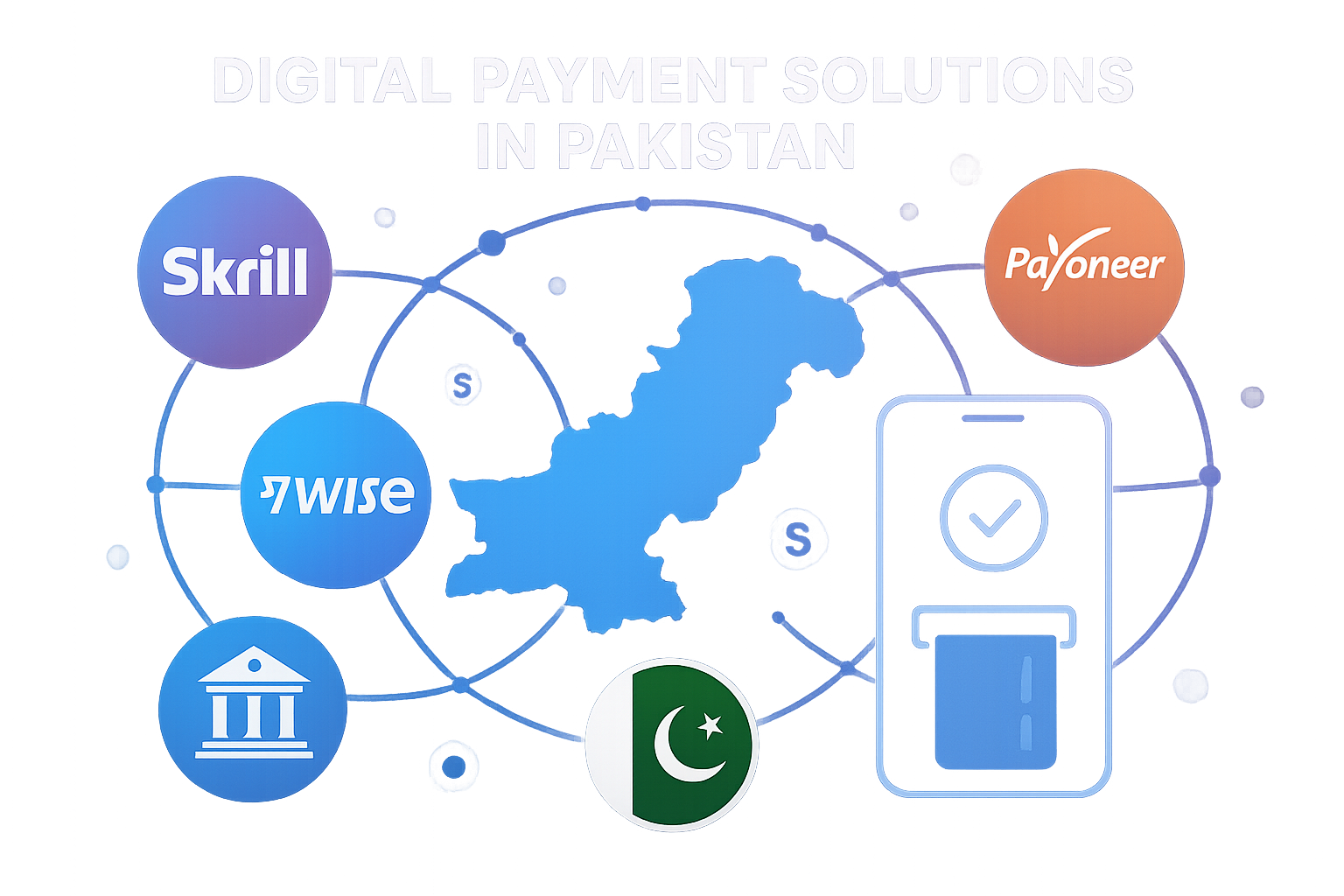
Given PayPal's continued unavailability, Pakistani users must develop practical strategies for managing international payments and digital transactions. Understanding the available alternatives, optimizing fee structures, and implementing efficient payment management systems can help Pakistani freelancers and businesses minimize the impact of PayPal's absence.
Selecting the right alternative payment platform requires careful consideration of individual needs, transaction volumes, and client preferences. Pakistani users should evaluate different platforms based on fee structures, processing times, withdrawal options, customer support quality, and integration capabilities with their specific business requirements.
For freelancers working with multiple clients, maintaining accounts with several payment platforms can provide flexibility and accommodate different client preferences. However, this approach requires careful management of account fees, minimum balance requirements, and tax reporting obligations across multiple platforms.
Optimizing currency conversion strategies can help Pakistani users minimize costs associated with international transactions. Understanding exchange rate fluctuations, timing currency conversions strategically, and comparing conversion rates across different platforms can result in significant savings over time.
Building strong client relationships and communication strategies can help Pakistani users navigate payment method limitations. Educating clients about available payment options, providing clear instructions for payment processing, and maintaining professional communication about payment procedures can minimize friction in business relationships.
Tax planning and record-keeping become more complex when using multiple payment platforms. Pakistani users should maintain detailed records of all international transactions, understand tax obligations related to foreign income, and consider working with tax professionals who understand international payment processing requirements.
Staying informed about regulatory developments and new payment platform launches can help Pakistani users adapt to changing market conditions. Following industry news, government announcements, and platform updates ensures that users can take advantage of new opportunities as they become available.
Security considerations become particularly important when using multiple payment platforms and managing international transactions. Pakistani users should implement strong password management, enable two-factor authentication, monitor account activity regularly, and understand the security features offered by different platforms.
Conclusion
The question is paypal available in pakistan continues to have a definitive answer: no, PayPal is not available in Pakistan as of 2025. This unavailability stems from a complex combination of regulatory barriers, business considerations, and operational challenges that have prevented PayPal from establishing operations in the Pakistani market despite the country's significant digital economy and large freelancer community.
The impact of PayPal's absence extends far beyond individual inconvenience, affecting Pakistan's competitiveness in international markets, creating additional costs for freelancers and businesses, and limiting opportunities for economic growth in the digital sector. However, the availability of alternative payment platforms, including Payoneer, Skrill, and Wise, provides Pakistani users with viable options for international payment processing, albeit with different fee structures, features, and capabilities.
Understanding the regulatory landscape, business considerations, and practical alternatives enables Pakistani users to make informed decisions about their international payment needs. While the future possibility of PayPal's entry into Pakistan remains uncertain, the continued evolution of the digital payment ecosystem provides hope for improved options and reduced barriers for Pakistani users seeking efficient international payment solutions.
The success of Pakistan's digital economy does not depend solely on PayPal's availability, but rather on the ability of users, businesses, and policymakers to adapt to available options while working toward improved payment infrastructure and regulatory frameworks. As Pakistan continues to establish itself as a major player in the global digital economy, the development of robust, accessible, and cost-effective payment solutions remains crucial for sustained growth and competitiveness.
For Pakistani users currently navigating international payment challenges, the key lies in understanding available alternatives, optimizing payment strategies, and maintaining flexibility as the digital payment landscape continues to evolve. While PayPal's entry would undoubtedly benefit the Pakistani market, the existing alternatives provide sufficient functionality for most users' needs when properly understood and utilized.

